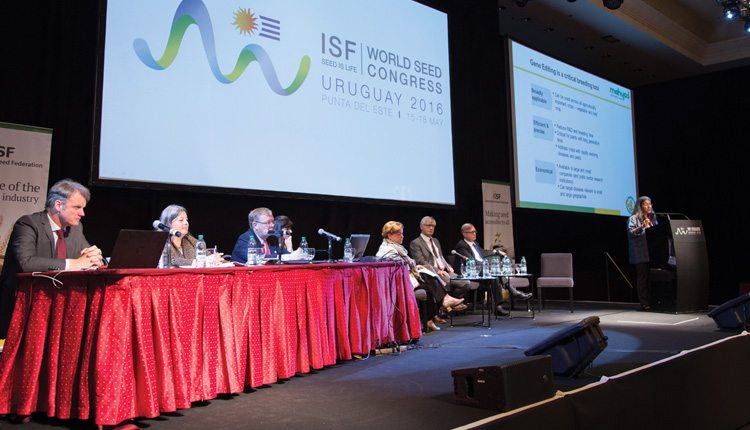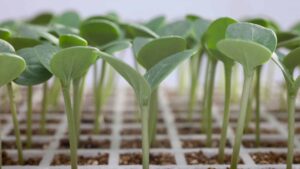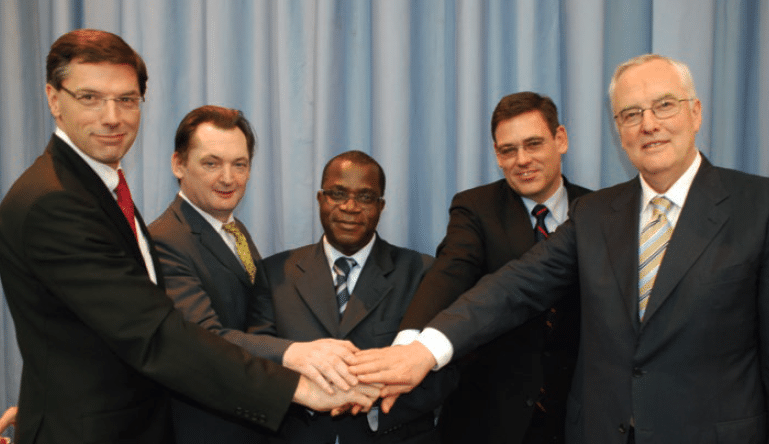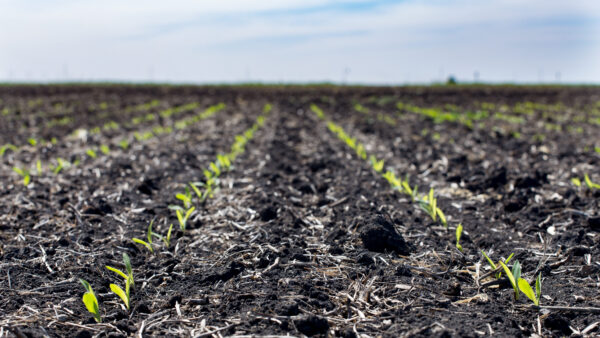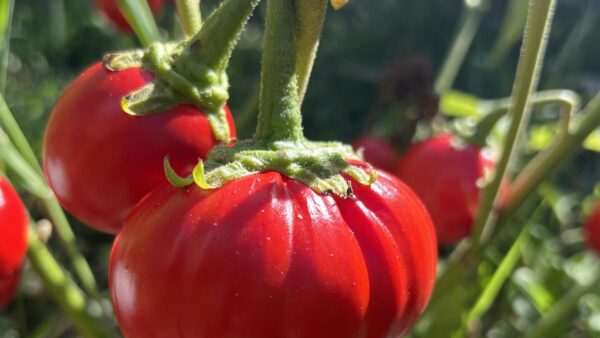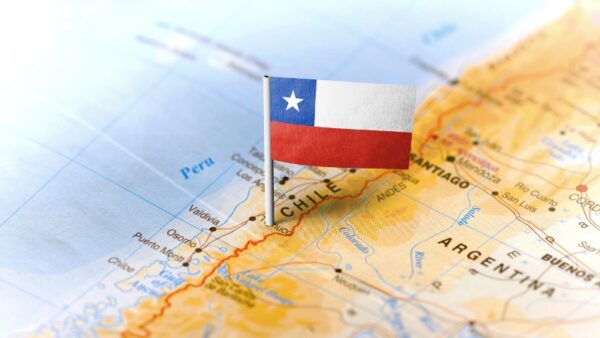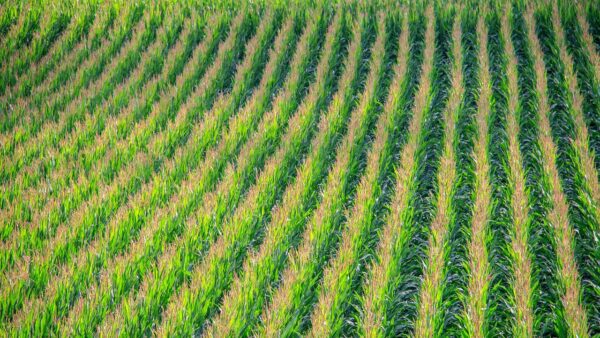At the International Seed Federation’s 2016 World Seed Congress, the industry prepares to advance its policies and positions. Here are the highlights.
At the International Seed Federation’s 67th World Seed Congress, more than 1,100 delegates from 64 countries gathered to discuss global seed industry issues and put forth solutions. The meeting also serves as a time to reflect on the past, to recognize leaders for their commitment and vision, to elect new leaders and to celebrate successes.
In welcoming delegates to the Congress, Alvaro Eyzaguirre, ISF president (2014-16) said when thinking of seed as a solution to food security, there has never been a more challenging time to be part of the industry.
“Our purpose is stronger than ever, and there’s never been a better time to be a part of ISF,” he said, referencing ISF’s new vision and mission unveiled last year.
ISF’s sections, committees and working groups are channeling their energy into meeting the goals set forth by the ISF strategic objectives. Some of their recent work is outlined below.
Sustainable Agriculture Sub-Committee
One area of focus for the Sustainable Agriculture Sub-Committee is the access and benefit sharing of genetic resources through the Convention on Biological Diversity’s Nagoya Protocol and the International Treaty of the Food and Agriculture Organization of the United Nations.
ISF is working to develop a user-friendly decision tree to provide the right information to its members regarding their access to genetic resources. The easiest way for breeders to access material is under the scope of the International Treaty (included in the multilateral system), as a Standard Material Transfer Agreement is provided. However, the long-term functioning of the International Treaty is endangered because it hasn’t received much financial support. An ad-hoc working group was put in place three years ago to enhance the functioning of the multilateral system.
As part of the open session of the Breeders Committee, there was a roundtable discussion about what the seed industry could expect from the International Treaty Working Group. Participants were reminded that conserving genetic resources and providing the means to do so is a common goal. As a major stakeholder, the seed industry should give its opinion and be part of the process to set the financial target. However, this is also the responsibility of end users, food processors and society as a whole.
Plant Breeding and Innovation
One of the top priorities for the global seed industry is to facilitate industry innovation. ISF recently drafted a concept paper on consistent criteria, and outreach is underway to achieve these criteria across countries for the scope of regulatory oversight for categories of products developed through newer breeding methods.
Furthermore, the group is working to develop a communication toolkit, which will enable ISF members to promote the benefits of plant breeding innovation and to champion the consistency of criteria with clarity, consistency and confidence.
As part of the toolkit, a list of frequently asked questions has been published on the “Resources” page of the ISF website, and talking points are being prepared.
Prior to the congress, ISF started to strengthen dialogue and foster alliances throughout the agriculture value chain. That was demonstrated during a roundtable discussion at the congress where representatives from the public breeding, grain trade and fresh produce sectors were part of the panel “Consistent Policies for Plant Breeding Innovation.”
During the roundtable discussion Usha Zehr, who chairs the Breeders Committee, emphasized the importance of having consistent policies, noting that products which are developed and useful for their target countries may not be able to be exported to other potential markets. Consistency is critical to ensure that technology at the development stage remains available.
Phytosanitary Committee
The activities of the Phytosanitary Committee fall into three areas: representing the industry at the International Plant Protection Convention (IPPC), supporting ISF’s members on regulatory issues and developing technical tools to facilitate the international movement of seed.
Because seed might present a risk when they are introduced to environments where associated pests could establish and spread, many countries have implemented phytosanitary restrictions for the movement of seed.
“ISF has been instrumental in the IPPC’s decision to develop a standard on the international movement of seed,” says Radha Ranganathan, ISF director of technical affairs. “The standard is intended to provide guidance to national plant protection organizations (NPPOs) on identifying, assessing and managing pest risk associated with the international movement of seed.”
Standard setting is a slow process, but Ranganathan is hopeful that the standard on seed will be adopted by IPPC member countries in a year or two.
Phytosanitary measures imposed by countries must be technically justified, and this is where ISF’s Regulated Pest List Initiative comes in. The objective of the initiative is to develop a database with a science-based summary of pertinent information to serve as a resource for the industry as well as regulatory bodies.
“The answer to the question ‘Is seed a pathway?’ determines if the phytosanitary measure is technically justified,” Ranganathan says. Based on a review of the scientific literature as well as industry research, knowledge and experience, the database shows that around 75 percent of the pests regulated for eight seed species studied are not a pest risk. Seed is not a pathway for the introduction or spread of these pests.
The committee hopes the regulated pest lists will be a useful tool for countries to review their lists of quarantine pests for seeds. This coupled with the seed standard will facilitate the international movement of seed.
Vegetable and Ornamental Section
The Vegetable and Ornamental Section has four working groups focused on disease resistance, genetically modified vegetables, vegetable seed production and market access, explains Szabolcs Ruthner, ISF regulatory affairs executive.
The section’s top priority is to secure free access to seeds in all countries. The second is to raise awareness about protecting germplasm and intellectual property rights. All four working groups dedicate their efforts to reaching the aforementioned goals, which align with ISF’s strategic objectives.
The Disease Resistance Working Group has been developing a coding system for pathogens. In order to identify and distinguish different isolates, the group recommends the use of differential hosts.
The Market Access Network was launched at the 2016 Congress in response to increasingly common market access issues. This new concept aims to deal with market access problems more efficiently by better coordinating existing efforts and resources.
The Vegetable Seed Production Working Group’s priorities include intellectual property; child labor and labor conditions; phytosanitary issues at the seed production level; and pollinators. In partnership with the Asia Pacific Seed Association, Ruthner says the group is developing best management practices for vegetable seed producers to maintain and avoid infringement of intellectual property.
Field Crops Section
At the congress, the Field Crops Section presented the report “Royalty Collection in Soybean Study” — the culmination of a two-year analysis of 12 countries and how they manage farm-saved seed, royalty collection and breeder’s remuneration.
The study is designed to help other countries work with their regulators to make sure that breeders’ work is protected. Certified seed, or recognized voluntary payment of a royalty on saved seed, is the way to ensure plant breeders are remunerated and to enable them to continue their research and development to create better performing varieties.
A panel discussion on value capture in soybean followed. This highlighted the study’s findings and the different levels of complexity that local situations may create.
One new project that section members are working on is preparing a list of regulated pests for maize, which will extend the regulated pest list to field crops.
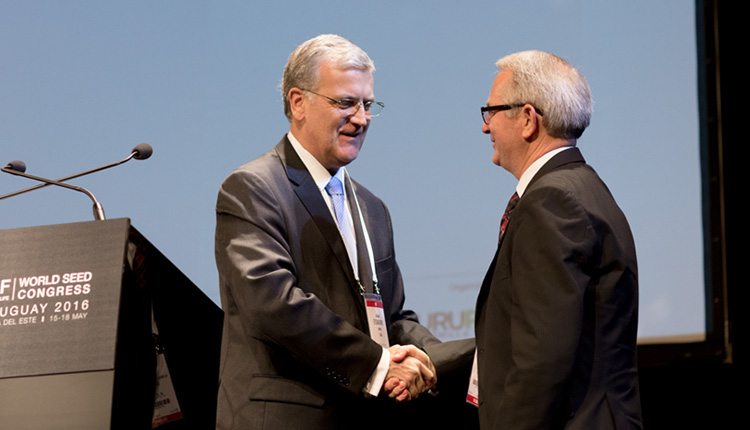
Recognizing Excellence
It’s recognized that all the progress that’s been made in these areas isn’t possible without the dedication and support of ISF members. One person who has devoted his life to advancing the seed industry is Tim Johnson, who was recognized with an ISF Honorary Life Membership.
Through the years, Johnson of Illinois Foundation Seeds has demonstrated commitment, dedication and leadership within the international seed industry.
“They say that it’s the people you will remember,” said Eyzaguirre, who presented the award. “One man I will certainly never forget is past president Tim Johnson. His dedication and drive for innovation touches everyone who meets him. You might remember that he assumed the role of ISF secretary general when he was ISF president — something that makes him truly unique in the long line of ISF presidents. He basically kept ISF on track during some testing times. I would like to recognize Tim’s exceptional service and unwavering support for the International Seed Federation with an Honorary Life Membership.”
Johnson, who began his work in the seed industry in 1976 as an hourly employee with AgriPro Biosciences, Inc., served as ISF president from 2012 to 2014. It wasn’t until 1993 that he joined IFSI — a research, product development, and licensing and production company — as vice president of marketing. Today, he is president of the SGI Field Crops Division, based in Lafayette, Ind.
Through the years, Johnson has been active at the national and international levels. All two-year terms, he served as ISF president, first vice-chair and second vice-chair. At the national level, he has served as chair of the American Seed Trade Association’s Corn and Sorghum Seed Division, ASTA Board of Directors liaison to ISF and he’s been active on numerous committees. Additionally, he has served on the board of directors for the American Seed Research Foundation and the U.S. Grains Council.
In his acceptance speech, Johnson thanked his family, his seed company and ASTA for their support. “Always remember: Better seed, better life,” he said.
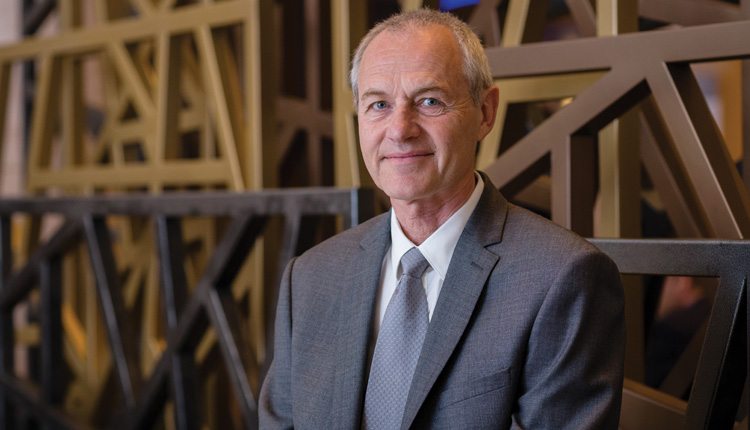
was elected the incoming president for the International Seed Federation (2016-18).
New Leadership
During the general assembly, delegates voted in a new president, Jean-Christophe Gouache of Limagrain.
Gouache will serve a two-year term as president. In this role, he is responsible for implementing the ISF 2020 plan, which focuses on innovation, the movement of seed, intellectual property rights, biodiversity and engagement.
A member of the seed industry for 35 years, Gouache is familiar with the issues.
Within Limagrain, he is vice-president for international affairs and chairman of the Scientific Affairs Committee. Additionally, he has served on the Executive Committee since 1998.
“First, I would like to thank you for the trust you expressed in nominating me as your president for the next two years. It’s an honor for me to serve ISF and to serve the global seed industry,” Gouache said. “Now that we have our ISF strategic objectives in place, along with an organized vision and mission, we are in a much stronger position going forward.”
As first vice-president, Gouache was responsible for leading the development of the ISF Strategic Objectives: 2016-2020. He credits Eyzaguirre’s foresight for creating increased continuity and a seamless transition.
“The work of ISF can only be as strong as the participation of its members,” he says. “As your new president, I’m counting on your support during the coming years. I look forward to taking on the tasks you have asked of me.”
Looking Ahead
ISF, in partnership with the Hungarian Seed Association, will host the 2017 World Seed Congress May 22-24 in Budapest, Hungary.
Historically, Hungary has bridged eastern and western Europe and today prides itself on the preservation of traditions while embracing innovations. The congress is designed to connect east and west, north and south and fill gaps; hence, the theme is “Growing Beyond Bridges.”
About 70 percent of the land in Hungary is suitable for agriculture. The country is a premier producer of sunflowers and also relies on maize and wheat. Hungary is a leading producer of paprika and pálinka — a local brandy made from fruits. Additionally, thanks to its favorable climate, soil health and infrastructure, seed production is a known tradition. Registration will open Jan. 10, 2017, at worldseedcongress2017.com.


